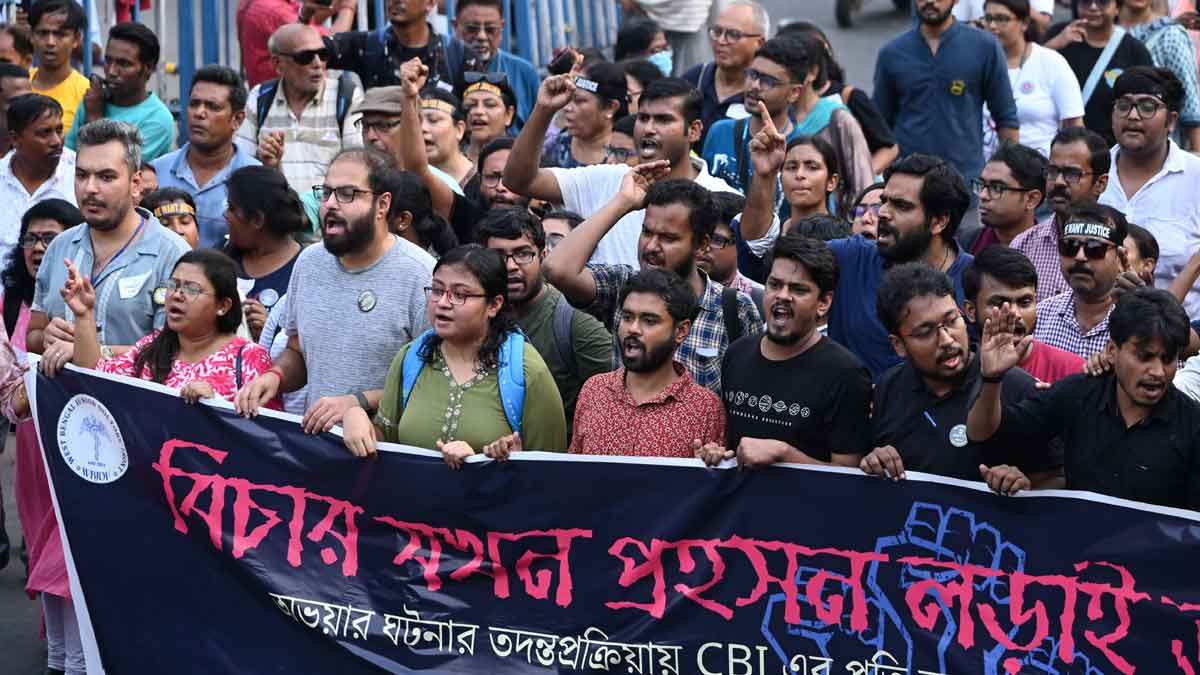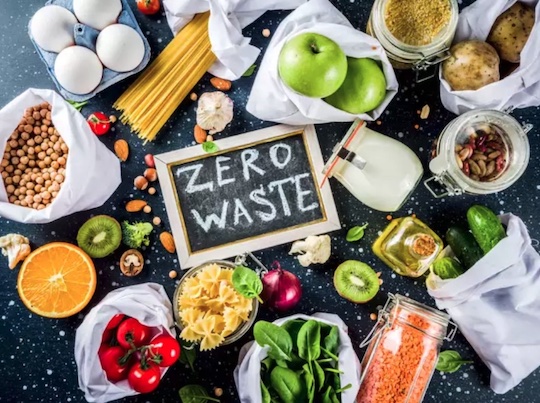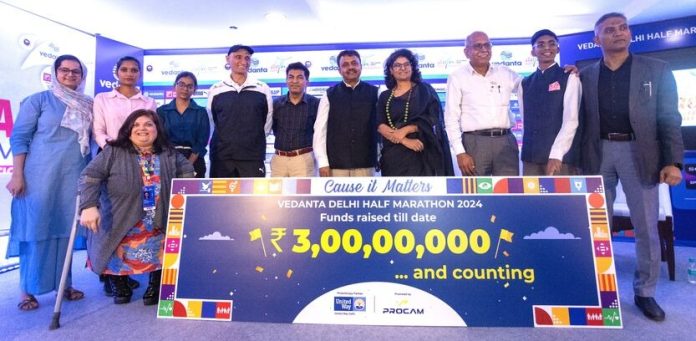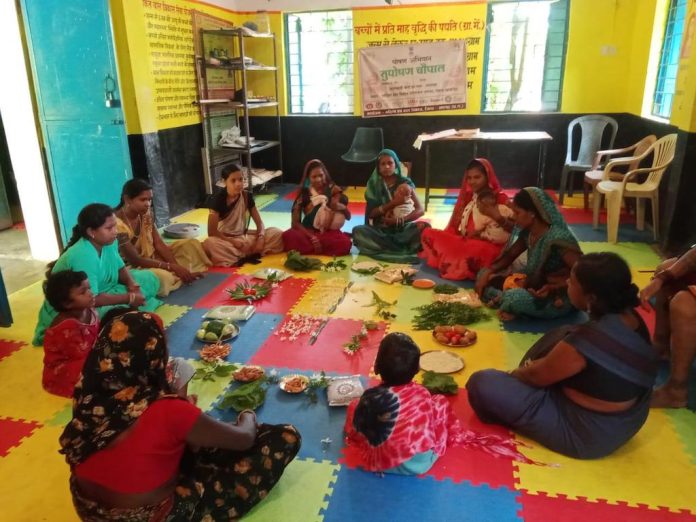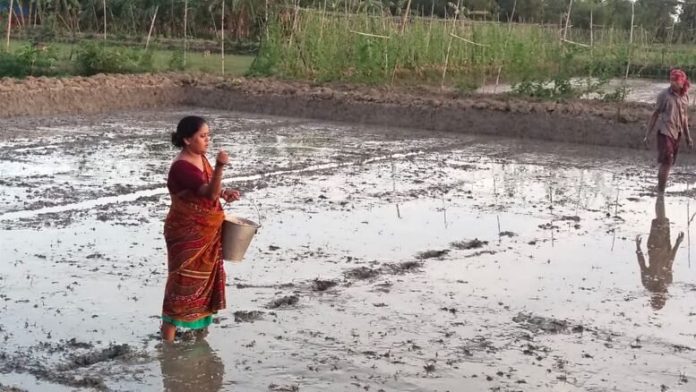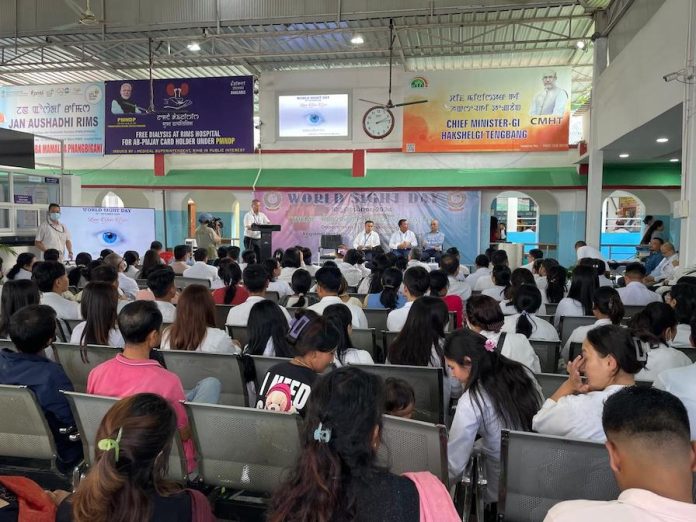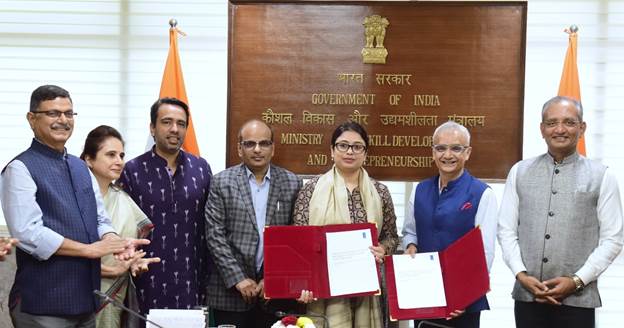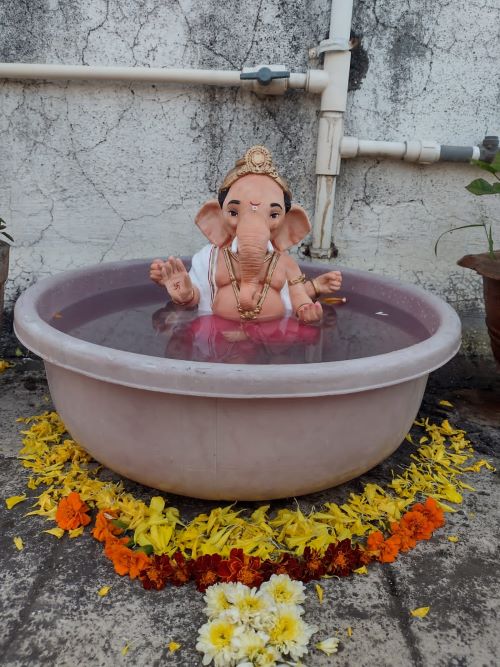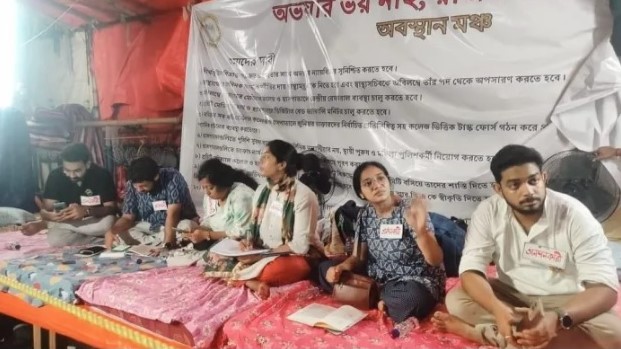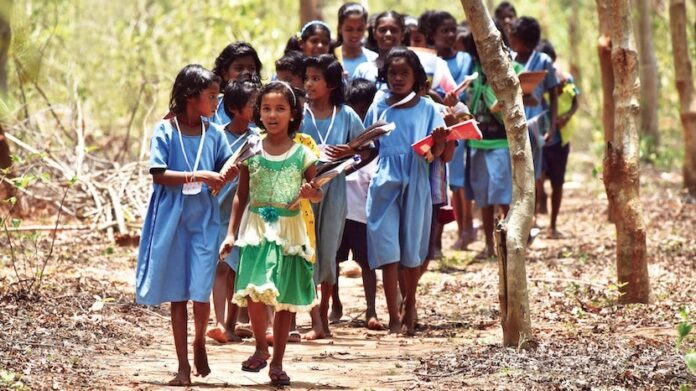Artistic Tribute to Women Farmers in Celebration of Mahila Kisan Diwas
To celebrate Mahila Kisan Diwas, Coca-Cola India has collaborated with renowned illustrator PS Rathour to pay tribute to the remarkable contributions of women farmers and their journeys toward sustainable agriculture. The artist’s canvas highlights five women farmers —Regina, Rani, Suvarna, Preethi, and Basanti—from diverse Indian states brought to life through captivating illustration.
At the heart of this initiative are inspiring stories of resilience and transformation. In Kodagu, Rani revitalized barren land into a flourishing coffee plantation, turning her personal loss into a thriving enterprise while earning a steady income. Her dedication and leadership earned her a position as a board director for the Madikeri Highlands Farmers Producers Company. Meanwhile, in Kolhapur, Suvarna’s journey from smallholder farmer to successful entrepreneur showcases the power of sustainable practices. Her innovative use of vermicomposting enhanced soil fertility, significantly boosting her sugarcane and vegetable yields and ensuring economic stability for her family.
These women are not only leaders in sustainable farming; they are vital agents of change in their communities. By adopting good agricultural practices (GAPs), they enhance food security, improve the well-being of their families, create jobs, and drive local entrepreneurship, illustrating the profound impact women have in agriculture.
Reflecting on the project, illustrator P.S. Rathour shared, “Creating these sketches was more than an artistic challenge; it was a chance to capture the courage and innovation these women embody. I hope my work reflects their strength and the vital role they play in shaping a sustainable future for Indian agriculture.”
Rajesh Ayapilla, Senior Director-CSR and Sustainability, Coca-Cola India & Southwest Asia (INSWA), stated, “Women farmers play a crucial role in our communities, and we’re proud to support their vital contributions to agriculture. Through our work over the last decade with Anandana, The Coca-Cola India Foundation we have witnessed firsthand how empowered these women are in fostering innovation and resilience in farming practices. Their dedication not only sustains families but also paves the way for a brighter future or the community in their ecosystem.”
Coca-Cola India’s #SheTheDifference campaign, in partnership with Anandana, The Coca-Cola India Foundation, reflects and shares stories of our long-standing commitment to empowering women farmers through initiatives like Project Unnati. This program has been instrumental in supporting farmers, providing them with the resources and training needed to thrive.
Disclaimer: This media release is auto-generated. The CSR Journal is not responsible for the content.
More Than 3 crore Raised By 80+ NGOs at the 19th Edition of the Delhi Half Marathon
The citizens of Delhi and India came together again to uphold the ‘Spirit of Giving’ and celebrate #AaRangDeDilli at the 19th edition of the world’s prestigious Vedanta Delhi Half Marathon. The world’s prestigious half marathon has slowly cemented itself as one of India’s leading philanthropy platforms. The event’s Philanthropy Partner United Way Delhi, has consistently strengthened its charitable impact – providing a cause-neutral platform, supporting various Sustainable Development Goals, and empowering NGOs.
For this edition, 78 not-for-profit organizations, more than 80 individual fundraisers, and 12 corporates, alongside thousands of donors, have collectively raised INR INR 3 crore for charity. This amount is almost two times the funds raised in 2023. Since its inception in 2005, the event has raised INR 81.21 crores, positively impacting millions of lives.
The fundraising is open until October, 31st 2024, for more details please log in to vdhm.unitedwaydelhi.org
To date, the overall funds raised by NGOs through direct donations are INR 11.46 lakhs, funds raised by individual fundraisers are INR 52.06 lakhs, corporate contributions amount to INR 2.36 crores, and funds raised using the Charity Bibs are INR 3.54 lakhs.
The platform has gathered support for various social causes, such as Child Development, Education, Health, Livelihood Generation, Organ Transplant, Disability (including children with cerebral palsy), cancer aid, support, and rehabilitation.
Commenting on the association and the philanthropy drive for this edition, Rina Kaushal, Chairperson of United Way of Delhi, said, “This year’s philanthropy drive at the Vedanta Delhi Half Marathon has been an extraordinary collective effort, inspired by our motto, “Cause It Matters.” We are immensely proud of the powerful collaboration between United Way of Delhi and our 78 NGO partners, who rallied together to support critical social development goals across various sectors. We are deeply grateful to our partners, fundraisers, and donors who have supported this mission and contributed to the collective success of our drive.”
The event’s title sponsor, Indian conglomerate Vedanta, boosted the event’s philanthropic drive through innovative social impact campaigns that struck a strong chord with the runners in the last two years. Vedanta’s #RunForZeroHunger campaign pledged to provide a nutritious meal for a needy child for every kilometre logged during the race. And this year, the target is 10 million meals through its flagship social impact initiative, Nand Ghar.
“Mass-participation sports have been indelibly linked to promoting social causes since immemorial. It is a humbling experience to witness so many citizens coming together for the greater good. Congratulations to all our fundraisers and United Way Delhi for their stellar efforts in ensuring the Vedanta Delhi Half Marathon is a silver lining to the social sector,” said Vivek Singh, Jt. MD, Procam International.
A brief profile of the highest fundraisers and their commitment towards fundraising:
Jason Joshua Moses raised INR 2,24,294 for Mohan Foundation
16-year-old Jason, who will be running the Open 10K, has raised INR 2,24,294/- to support the Mohan Foundation, supporting a lifesaving mission of organ donation. He believes in giving back to society & supporting the underprivileged. By supporting ‘Anudaan,’ by the Mohan Foundation, he is raising funds to make a difference in helping organ transplantation, especially for children.
Rania Sarker raised INR 1,24,900 for Miracle Foundation India.
Rania Sarker has raised INR 1,24,900 for Miracle Foundation India; she is a senior grade student at The Shri Ram School Moulsari. Her philanthropic journey started last year during an internship with Miracle Foundation India. Inspired by her father’s values of
compassion and responsibility, Rania has since participated in multiple initiatives focused on uplifting underprivileged communities. Her dedication to creating positive change drives her fundraising efforts at the Vedanta Delhi Half Marathon. Guided by empathy and a deep commitment to serving others, Rania is determined to make a meaningful impact on the lives of those in need.
Deepak Sharma raised INR 16,60,199 for Udayan Care
Deepak Sharma, a passionate fundraiser & Trustee at Udayan Care, has made a significant impact by raising funds for the organization at the Vedanta Delhi Half Marathon since 2016. Across editions, he has cumulatively raised over INR 1.7 crore for the organization, and he continues his journey in the 2024 edition.
Deepak’s dedication to aftercare programs is evident in his heartfelt conversations. He is associated with Udayan Care in multiple ways and his humility is a testament to the richness that echoes through his dedication to contributing to society. He believes that individual efforts for social causes are vital to our country’s progress. His motivation to support this cause comes from within, driven by a deep sense of satisfaction and fulfilment.
Anil Chawla raised INR 5,37,251 for the VIPLA Foundation.
Anil Chawla has been fundraising since 2017 and this year has raised INR 5,37,251 for Vipla Foundation. Championing the Vipla Foundation’s mission to educate underprivileged children is close to his heart. A firm believer in education as a catalyst for national growth, Mr. Chawla supports the foundation’s efforts to ensure children reach age-appropriate grade levels and complete their schooling successfully.
Etasha Society raised INR 70,22,452
Etasha Society, an NGO dedicated to empowering youth through education and skill development, shared their inspiring experiences and motivations for participating in the Vedanta Delhi Half Marathon from 2011 to 2012. Their stories shed light on this event’s profound impact on their organization and the communities they serve.
This year, in the 19th edition of VDHM, the Etasha Society has set a new level that inspires us to believe in the power of collective action. The funds they have raised are not just numbers; they are a hope for young hearts to pursue their dreams.
Etasha Society’s Project’ Fight Berozgaari’ is an initiative to make youth from less privileged communities financially self-reliant through sustained employment and income generation. This project will help individuals become financially independent, helping not just them but their families as well. Etasha’s dedication and passion for helping these students find the spark within themselves motivate each one of us.
United Way Delhi raised INR 62,60,190
United Way of Delhi (UWD) is an independent not-for-profit organization affiliated with the United Way Worldwide Family – one of the World’s Largest leaders with 1800 affiliate chapters across 41 countries. United Way Delhi (UWD), since 2008, has been working actively to advance the ‘common good’ for the local community through innovative social impact interventions and partnerships under domains including foundational learning, quality education, healthcare, environment, livelihood, and disaster response.
United Way of Delhi, in this edition, successfully raised INR 62,60,190 through two impactful initiatives: SVASTI and Samriddhi. SVASTI is a pioneering mental health initiative to enhance emotional well-being in rural communities. By addressing mental health at a grassroots level, SVASTI is helping to build a healthier and more resilient future for these communities.
Through the Samriddhi project, United Way of Delhi empowers women from marginalized communities, equipping them with the resources, skills, and training necessary to achieve economic independence. By supporting women in their journey towards economic independence, Samriddhi benefits individual families and creates ripple effects of empowerment and growth across entire communities.
Udayan Care raised INR 20,83,058
Udayan Care is a public charitable trust in Child & Youth Care, Education & Empowerment of Girls, skilled underprivileged Youth & Women, and Advocacy for Alternative Care, Child Rights, and Family Strengthening. Headquartered in New Delhi, It has a presence in 36 cities and 15 states of India. Udayan Care’s vision is “Making Young Lives Shine.” This year, Udayan Care raised funds for their Aftercare Program to support the care leavers in building a brighter, more secure future.
Genpact Supporting SankalpTaru Foundation and United Way of Delhi contributed Rs.63,75,000
Genpact’s CSR focuses on creating a better planet through sustainable initiatives, supporting environmental programs, and improving access to health, education, and opportunities. Since 2022, Genpact has participated in the Vedanta Delhi Half Marathon, doubling its contribution annually. Through employee giving and volunteering, Genpact has supported multiple NGOs and underprivileged students, driving meaningful impact across communities.
Disclaimer: This media release is auto-generated. The CSR Journal is not responsible for the content.
CSR: Ambuja Foundation Collaborates with ICDS and Health Department to celebrate ‘Poshan Maah 2024’ across locations
Executing a number of community welfare activities and creating awareness around nutrition, Ambuja Foundation zealously celebrated Poshan Maah 2024 in the month of September. The Foundation, known for its pan-India social development work to transform rural communities, conducted a month-long nutrition campaign focusing on awareness, health camps, community engagement programs and rallies in collaboration with ICDS and Health Department of the districts.
Many events such as ‘god bharai’, ‘Annprashan’, counselling on breastfeeding and family planning were organised, focusing on maternal nutrition and balanced diet in association with ICDS and Health Department at AWCs and Block level. Even at the skill training centres and amongst women and adolescent groups health camps and check-up sessions.
Special camps were also organized for pregnant and lactating mothers to counsel them about nutrition and its importance for them. The women were educated about improving maternal and child health through nutrition awareness and community engagement and discussions were also held on the role of nutrition in early childhood development.
The campaign aimed to spread awareness around the problem of malnutrition by improving nutritional outcomes for children, pregnant women, and lactating mothers. A series of nutrition demonstration sessions were organized across various Anganwadi centres aimed to education and empower communities, particularly mothers and caregives on the importance of balance nutrition for young children and pregnant women. At the sessions, beneficiaries learnt how to prepare affordable nutritious meals emphasizing the significance of a diverse diet.
During the first week of September, the foundation organised a nutritious meal ‘Kichidi’ cooking session in one of the locations with mothers and children in alignment with the ICDS department. A sensitization campaign was executed on the theme of ‘What you eat makes you who you are’ which indicates food selection is significant in our life as it directly affects our health.
Speaking on the success of ‘Poshan Maah 2024, Pearl Tiwari, CEO, Ambuja Foundation, said, “Good health and education go hand in hand. With the launch of ‘Poshan Bhi, Padhai Bhi,’ we want to build a foundation of health and education at grass root level that lasts a lifetime. Our initiative aims in creating awareness around lifestyle choices, nutritional habits, deficiencies, poor sanitation and hygiene. Critical issues of malnutrition, specially amongst children, pregnant women and lactating mothers will be addressed for the betterment of the society in these areas.”
Disclaimer: This media release is auto-generated. The CSR Journal is not responsible for the content.
International Day of Rural Women: The Indian Story of Rural Female Empowerment
India is a great mix of both urban and rural spaces. While urban spaces connect the country to technology and the outside world, the rural part of India produces food and fibre for the entire nation. But despite its valuable contributions, rural spaces in India suffer setbacks in education, technology, innovation, social change, and economic growth. Approximately half of this rural population is women which numerically accounts for 40 crore individuals, according to the last Indian Census. Each rural female contributes to the family income along with maintaining almost all the daily responsibilities by herself. In villages, the work of fetching water and firewood for food is also the responsibility of the females of the household.
It was to commemorate all these rural women that the United Nations announced 15th October as the International Day of Rural Women. The idea is to see women as agents of change at both environmental as well as human developmental levels.
The theme for this year’s International Day for Rural Women is “Rural Women Sustaining Nature for our Collective Future: Building Climate Resilience, Conserving Biodiversity, and Caring for Land towards gender equality and Empowerment of Women and Girls”. This theme aligns perfectly well with the story of Palirani Sahu, an inspiring female changemaker from rural West Bengal.
The 2022 cyclone Amphan in West Bengal created havoc in the rural livelihood of the state. Agricultural lands were completely destroyed, leaving behind barren saline soil. This is where Palirani’s story starts.
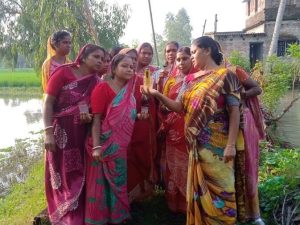
Palirani’s Digital Farm School
After the cyclone, Palirani, along with her mates Prasanta Giri and Dilip Mitti started leading a local Digital Farm School or DFS. Started by Reliance Foundation, the school champions learning in innovative practises of organic and integrated farming systems By setting up the school, Reliance Foundation wanted to help local farmers recover from the aftermath of a natural disaster and rebuild their livelihood by providing important tools along with an informed knowledge system.
This could have been possible because of many rural women who could take up strong positions of leadership and dedicatedly work as a decision-maker in agriculture. The biggest challenge India is currently facing in terms of gender inequality is the inclusion of women in the decision-making process. This is so because culturally, a female’s voice is considered less informed and weak. To address the same problem, Reliance Foundation focuses on women leaders in rural areas and strengthens them based on three pillars: inclusive development, livelihood, and social security.
Reliance Foundation was founded by Mrs Nita Ambani to provide impetus to various philanthropic initiatives of Reliance Industries Limited. Because of its persistent push to the cause of women empowerment, Reliance Foundation has emerged as one of the largest philanthropic organisations the country has today.
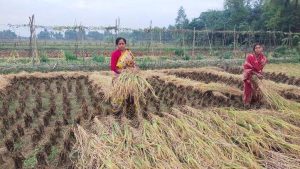
Reliance Foundation Empowering Women Leaders of the Village
To improve women’s participation and their leadership in important places, Reliance Foundation has a Rural Transformation Information Services Programme with various partners, in this region, with Sasya Shyamala Krishi Vigyan Kendra as partner. This is a technology solution initiative that helps farmers with complicated procedures of soil testing, warm composing mushroom cultivation, azole cultivation, and other innovative techniques. Women like Latika Haldar, Tapati Choudhuri Halder and 100 more rural women started cultivating mushrooms and organic vegetables on their farms. This tangibly improved their lives, both in terms of nutrition and income.
This platform also enables farmer-to-farmer learning, in the same way Palirani and her friends or fellow farmers together, learned. This further enhanced the accessibility of information while fostering a culture of continuous learning and innovation within the community. The Reliance Foundation team also installed a QR code for each activity displayed along with the demonstration in the community centre.
The community decision to allot space to Reliance Foundation for demonstration and training in Bhetkipur not only created a sense of solidarity amongst farmers, but also empowered women farmers who started taking up decisions for their own farms, and futures.
Latika Haldar is a 65-year-old widow who stays alone. Talking to us, she said, “I can earn about Rs 300 every week from the sale of mushrooms and organic vegetables from a small patch which laid barren for years. I also cultivate fodder for my goats which makes a lot of difference. Since I got earthworms from the community centre, I could make manure at home using kitchen waste, dry leaves and cows which can get easily in the village. I don’t have to rely on anyone’s support.”
“I started cultivating berseem variety of fodder based on the training from this Reliance Foundation. As a result, I have surplus fodder now, which motivated me to increase the herd size from 5 to 16 goats in November 2023,” said another livestock rearer, Tapati Choudhuri Halder.
For women in rural communities, Reliance Foundation’s efforts like in the case of Palirani, have resulted in greater participation and interest with steadily growing women-specific digital farm schools. Empowering rural communities with information, Reliance Foundation’s Rural Transformation initiatives have reached millions, contributing significantly to sustainable development of rural India.
CSR Campaign Launched Nationwide Awareness Campaign for World Sight Day 2024
In observance of World Sight Day, ENTOD Pharmaceuticals launched a series of impactful initiatives aimed at raising awareness about children eye health and addressing the rising concern of vision impairment across India. The campaign spanned 12 states, with the goal of promoting eye care and making essential products accessible to those in need.
This year’s World Sight Day theme, “Love Your Child’s Eye,” focusses on the importance of protecting vision, raising awareness about vision impairment and blindness, and encouraging proper eye care practices. Uncorrected vision issues can significantly affect education and social inclusion, but simple solutions like spectacles can make a profound difference. The global SPECS 2030 initiative, launched by the WHO in May 2024, intents to ensure affordable access to quality spectacles and related services for everyone who needs them.
As part of the initiative, ENTOD organised eye care awareness camps in key regions such as Tamil Nadu, Telangana, Mumbai, Karnataka, Punjab, and Gujarat. These camps distributed free samples of eye drops and supplements to needy people, ensuring better access to crucial eye care products. More than 40,000 patients were reached through these efforts, supported by 5,000 volunteers and more than 30 experienced doctors. To further broaden the campaign’s reach, ENTOD produced patient awareness videos in over 12 regional languages, providing vital information on children eye health to audiences across the country.
“We are proud to have been able to contribute towards children’s eye health on the occasion of World Sight Day in particular raising the awareness of childhood myopia which affects almost 1 every 4 children in India. This initiative is just one part of our ongoing efforts to ensure that people, especially those from underprivileged backgrounds understand the importance of good eye care. Our teams and volunteers have worked tirelessly to make this possible,” said Mr. Nikkhil K Masurkar, CEO of ENTOD Pharmaceuticals.
Dr. Aloka Hedau (Pediatric Ophthalmologist & Squint Surgeon) Hyderabad,, a doctor participating in the campaign, added, “It’s essential to educate the public about the importance of regular eye check-ups and early detection of conditions like myopia, especially in children. This campaign not only raised awareness but also provided direct care to many who may not have had access otherwise. The participation from doctors and volunteers has been incredible, and the positive response we’ve received shows just how necessary these initiatives are.”
She continued, “Managing and preventing myopia in children involves encouraging outdoor activities, limiting screen time, and ensuring proper lighting when reading or studying. Regular eye check-ups are critical for early detection, and solutions like glasses or contact lenses can significantly improve a child’s quality of life. Through campaigns like this, we hope to make these solutions more accessible to the public.”
Disclaimer: This media release is auto-generated. The CSR Journal is not responsible for the content.
Ganesh Eco-Utsav Contest promoting environmentally friendly practices comes to an end
Mumbai, India: The Guardians Real Estate Advisory, a leading real estate consultancy and advisory firm, proudly announces the successful completion of its Ganesh Eco-Utsav contest. The main objective of this 11-day event was to promote environmentally friendly practices during Ganesh Chaturthi like choosing eco-friendly idols, reducing plastic waste, and using sustainable pandal decorations. By focusing on eco-conscious celebrations, The Guardians highlighted the importance of blending tradition with sustainability.
Indian festivals like Ganesh Chaturthi are uniquely celebrated with love and affection. For generations, we have celebrated festivals in the simplest ways possible without disturbing the ecosystem. In our culture, it is common to use natural materials, embrace traditional methods, and develop community relationships, ensuring that our celebrations are both meaningful and environmentally conscious.
The contest was launched with a compelling AI-generated video of Lord Ganesha, encouraging people to participate in the contest and bring Ganesha home this year in an environmentally friendly manner. The contest was for all age groups and from across the country. The contest was organised digitally on social media platforms and had three primary categories. The categories were eco-friendly idols, decorations, and immersion procedures. Participants had to ensure that all these activities were conducted using sustainable methods and environmentally friendly materials.
The contest had an overwhelming response and included participants from all over Maharashtra. The contestants’ entries were rigorously judged, and three winners were awarded. The grand winner across the three categories was crowned Eco-Utsav Green Ganesh Guardian 2024.
Jayesh Rathod Director and Co-founder of The Guardians Real Estate Advisory shared his vision behind the event. “Our aim was to combine tradition with sustainability, which has been a part of our culture for decades. This event will inspire people to celebrate responsibly, creating a community that appreciates eco-conscious practices and safeguards the environment for future generations. A conscious step taken now will create a huge impact on a brighter tomorrow. Just as in real estate, where sustainable designs are reshaping the way we live, eco-friendly celebrations can also pave the way for a greener, healthier future.” He said.
Disclaimer: This media release is auto-generated. The CSR Journal is not responsible for the content.
Indian Medical Association calls for nationwide Hunger Strike in solidarity with Kolkata doctors
The Indian Medical Association (IMA) is hosting a hunger strike 15th October on Tuesday in solidarity with the doctors of Kolkata who are on fast unto death since 5th October in protest against the brutal rape and murder of trainee a doctor in the state-run R G Kar Medical College and Hospital, which took place on the 9th of August this year. The IMA has urged all office bearers and resident doctors across the country to join the hunger strike which will go on for 12 hours on Tuesday.
The medical body announced in an official statement, “Across the country, IMA will hold a dawn-to-dusk fast from 6 AM to 6 PM on Tuesday, 15th October 2024. IMA will coordinate with RDAs and support their local actions.”
“Young doctors of Kolkata are on a fast-unto-death struggle for their legitimate demands. They are on their ninth day of fasting. Three of them have been hospitalised. The movement has the support of the people. IMA has appealed to West Bengal CM Mamata Banerjee to accept their demands. IMA National President Dr. RV Asokan has visited the fasting doctors and the leaders of the movement,” the IMA further stated.
Meanwhile, the Federation of All India Medical Associations (FAIMA) has also warned of a nationwide “complete shutdown of medical services” if any harm is caused to the protesting junior doctors.
